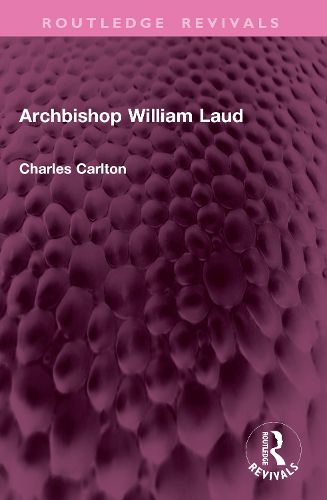Readings Newsletter
Become a Readings Member to make your shopping experience even easier.
Sign in or sign up for free!
You’re not far away from qualifying for FREE standard shipping within Australia
You’ve qualified for FREE standard shipping within Australia
The cart is loading…






First published in 1987, Archbishop William Laud shows how Laud dragged the English Church, and with it English society, towards a new and radical version of Anglicanism. Carlton presents Laud in the context of his times, showing how closely his personal life and character were woven into his political and religious career. By using Laud's personal papers, his letters and diary, Carlton draws a psychological profile of this most insecure man. He analyses Laud's dreams, revealing that both awake and asleep the archbishop was haunted by some guilty secret, obsessed with details, bedevilled by enemies and conspiracies, while being both ashamed and proud of his own humble origins. The tensions between Laud's private and public worlds made him seem cruel, thus turning him into the perfect scapegoat for the failure of the king's policies. This book will be of interest to students of history, literature and psychology.
$9.00 standard shipping within Australia
FREE standard shipping within Australia for orders over $100.00
Express & International shipping calculated at checkout
First published in 1987, Archbishop William Laud shows how Laud dragged the English Church, and with it English society, towards a new and radical version of Anglicanism. Carlton presents Laud in the context of his times, showing how closely his personal life and character were woven into his political and religious career. By using Laud's personal papers, his letters and diary, Carlton draws a psychological profile of this most insecure man. He analyses Laud's dreams, revealing that both awake and asleep the archbishop was haunted by some guilty secret, obsessed with details, bedevilled by enemies and conspiracies, while being both ashamed and proud of his own humble origins. The tensions between Laud's private and public worlds made him seem cruel, thus turning him into the perfect scapegoat for the failure of the king's policies. This book will be of interest to students of history, literature and psychology.